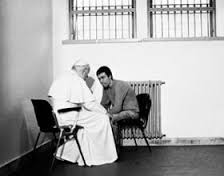Picture four people at a bridge table. The deck is dealt, the cards sorted.
After a moment, the first bid is spoken. “Two clubs.” It’s a fairly strong pitch.
The next player doesn’t hesitate. “Four hearts,” he says, stunning everyone.
After that, the third and fourth players pass. All three look at the original bidder. Going to five clubs would be over the top, but it could mean less of a loss. A decision is weighed. The outcome remains unknown.
The gist of that scene came from a dream. Because dreams are highly symbolic, think with me about possible interpretations.
What if Hearts, Diamonds, Clubs, and Spades stood for different forces at work in our world? Hearts would obviously embody love, mercy, and grace. Diamonds could signify wealth or greed. Perhaps Spades represent labor, as the word is synonymous with “shovel.” Spade, if seen as a spear, might symbolize war. And what if Clubs pointed to the power of government and the rule of law. All these forces profoundly affect the human story.
In addition, bidding in a bridge game determines the trump suit. In the same way, how do forces of love, mercy, grace, wealth, greed, labor, war, government and law shape our lives? Does one trump the other depending on circumstance?
This particular dream highlighted Hearts and Clubs and could portray the tension of love, mercy, and grace—versus—truth, justice and righteousness. The human condition requires that both “hands are played,” but this difficult balance has brought turmoil through the ages.
As believers, our challenge is to do justice, love mercy and walk humbly with God. Being “just” in our behavior toward others is not the same a bringing justice on others. If we don’t understand the difference, we may get branded as judgmental—a popular adjective, marring Christians today.
Pastor and teacher, Rick Joyner, gave keen insight on that distinction. He said God has given authority to governments to bring justice. At the same time, the church is God’s arm of mercy. But what does that look like in real terms?
In May 1981, 23-year-old Turkish assailant Mehmet Ali Agca fired off multiple shots in an attempt to kill Pope John Paul II. Swiftly captured, he was given a life sentence and imprisoned in Italy. Two years later, the Pope visited the young man in his cell to offer forgiveness. The two spoke privately for 21 minutes, and Agca kissed the Pope’s hand.
The power of justice and the force of mercy seemed to work together.
However, the Pope later intervened on Agca’s behalf. As a result, Italy’s President, Carlo Azeglio Ciampi pardoned and released Agca in 2000 after nineteen years in a Roman cell.
Did mercy go too far? Did freedom from consequences change Agca’s life for the better?
We know from current news that this is not often the case.
Interestingly, in the musical Les Mis the main character, Jean Val Jean, also serves nineteen years in prison.
Now free, he is still an angry man, frustrated with the stigma of being an ex-con. In desperation, he steals silver utensils from the church. When authorities catch him and drag him back to the parish, the priest conceals the theft, saying the silver was a gift. He even goes the extra mile, offering Jean Val Jean the prized silver candelabras. This tremendously moving scene, shows the extravagant grace of God for salvation. Without this act of mercy, Jean Val Jean would’ve returned to prison forever. Instead, he becomes a Christ-like figure, giving sacrificial love to others in need.
When the police leave, the priest speaks to Jean Val Jean…“But remember this my brother. See in this some higher plan. You must use this precious silver, to become an honest man. By the witness of the martyrs, by the passion and the blood, God has raised you out of darkness. I have bought your soul for God.” (watch here)
However, many would say that—love without truth—mercy without justice—forgiveness without consequences—leads to a host of different problems. Things called enabling, entitlement, manipulation, and lawlessness that bring monstrous results! In the world of raising children it’s known as “spoiled brats.” And that’s only on a small scale. Love may have the winning hand, but given human nature, it must also be balanced with the “club” of truth, justice and righteousness.
The question is—when is “complete mercy” the right thing to do?
God offers complete mercy to those who choose Jesus, because justice was served on the Cross. But beyond that, how do we finesse the right balance in our day-to-day choices.
I believe complete mercy has to be prompted by the Holy Spirit to avoid serious pitfalls.
“’Let him who boasts, boast of this, that he understands and knows Me, that I am the Lord who exercises lovingkindness, justice and righteousness on earth; for I delight in these things,’ declares the Lord.” —Jeremiah 9:24
More to come…
~ ~ ~ ~ ~ ~ ~ ~ ~ ~ ~ ~
How do you balance love, mercy, and grace with truth, justice and righteousness in your life? Has God ever told you to give complete mercy to anyone?











